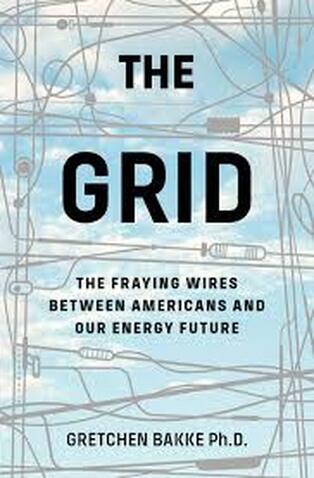
Energy is a hot-button issue these days. From the marble halls of state to Louisiana’s once-battered and besmeared coastline, we as a nation keep hearing about the need to make the transition to green, clean, sustainable energy. Doing so, we are told, will help put our jobless back to work, contribute to America’s triumphant reemergence on the world stage, and quite possibly save the planet. At the very least, it will spare us from the oil spills, rig explosions, fracking quakes, and mining disasters that comes without warning and destroy without compunction. So, too, we hope that more sustainable forms of power might help guarantee us a future with fewer superstorms and snowpocalypses, rising tides and shrinking ice caps. The stakes for changing how we make and use energy have never been higher.
Transitioning to sustainability is a big, long-term challenge. But left out of this picture is the fact that for the most part, America does not run on gas, oil, or coal any more than we may one day run on wind, solar, or tidal power. America runs on electricity. The age of information has remade the ways we communicate, socialize, and even learn things into electricity-dependent processes. And though we tend to think of this shift in terms of computerization, the computer is only the tool. Electricity is what makes it work. As computers become ever more essential to how we live, travel, and care for ourselves, so, too, have electric appliances brought us bright, functional homes and workplaces. Our health and our hospitals are intensely dependent upon electric power, as are our factories, ports, police and military. Even money these days is electrically made and stored data that we sometimes convert into pieces of paper and the jingle of coins. Some of us even smoke electric cigarettes, and its looking likely that soon we’ll be shuttling about in self-driving electric cars. Electricity has become so essential that using the word ‘blackout’ to refer to a power outage is something of a misnomer. Losing light is the least of our problems when our electricity system now crashes to ground, which it’s doing with increasing frequency.
Transitioning to sustainability is a big, long-term challenge. But left out of this picture is the fact that for the most part, America does not run on gas, oil, or coal any more than we may one day run on wind, solar, or tidal power. America runs on electricity. The age of information has remade the ways we communicate, socialize, and even learn things into electricity-dependent processes. And though we tend to think of this shift in terms of computerization, the computer is only the tool. Electricity is what makes it work. As computers become ever more essential to how we live, travel, and care for ourselves, so, too, have electric appliances brought us bright, functional homes and workplaces. Our health and our hospitals are intensely dependent upon electric power, as are our factories, ports, police and military. Even money these days is electrically made and stored data that we sometimes convert into pieces of paper and the jingle of coins. Some of us even smoke electric cigarettes, and its looking likely that soon we’ll be shuttling about in self-driving electric cars. Electricity has become so essential that using the word ‘blackout’ to refer to a power outage is something of a misnomer. Losing light is the least of our problems when our electricity system now crashes to ground, which it’s doing with increasing frequency.
|
Our energy sources might be the main cause of our worry – coal with its carbon emissions, natural gas with its methane emissions and questionable extraction methods, nuclear with its poisoned waste, and even oil with its cost in wartime blood – but they are not all that matters to the story of American power. The rest of the tale begins at the precise moment these fuels go up in flames. We don’t use them raw. And while lots of oil still goes into cars, almost all the others are used to power the grid – a complex and expansive electrical delivery system that we care little for and think even less about.
|
It’s the world’s largest machine and the twentieth century’s greatest engineering achievement and we are remarkably oblivious to it. |
Though it is situated squarely at the center of our modern lives, for most Americans the grid rarely breaches consciousness. A couple of years ago I was shown a snapshot a friend had taken of a sunset, its dusky pinks and evening grays bisected straight through by power lines; it even had a couple of utility poles smack-dab in the middle of the frame. “Look,” she said, “what a beautiful sunset.” The grid was right there and it didn’t even disturb the view. It’s the world’s largest machine and the twentieth century’s greatest engineering achievement and we are remarkably oblivious to it....


